We are entering a 10x world
and how to prepare for it
If you are a knowledge worker, how should you be preparing for the AI age?
The blistering pace of AI progress over the past 2 years has made it clear that we are entering a period of hyper-growth in knowledge work and this is likely going to overturn industries, disrupt the traditional knowledge work job market while still growing the economy faster than ever before.
Despite the underwhelming launch of GPT 5, it seems likely that the world of knowledge work will be very different in a few years. Whether it takes 10, 20 years or more is debatable, but change and subsequent rapid progress is certain and undeniable.
Before we can chart a path to navigate the changes ahead, we first need to understand how AI fundamentally changes the nature of work.
How we got here
In 1440, Johannes Gutenberg sparked a knowledge bonfire that lit up the world. Before his printing press, scribes scratched out maybe a couple of dozen pages a day by hand with books costing as much as a year's salary.
After the printing press?
3,600 pages per workday, with tens of millions of volumes flooding Europe by 1500 reducing costs by an estimated 340 times. Ideas leaped borders like wildfire and led to scholarly networks being built that powered the Scientific Revolution.
Since that time we've had at least a few step-changing progress events in human history. Let's talk about the two big ones.
Step change 1 - The Industrial Revolution
The first one was the Industrial revolution which re-organized society from a primarily agrarian society to an industrial one.
A large part of modern work habits can be traced back to the processes and systems invented and perfected during the past couple of hundred years. The rise of cities, the modern work week, the company man - all trace their origins to the effects of the industrial revolution.
This started to change slowly with the invention of semiconductors.
Step change 2 - The Computing Revolution
The Computing revolution was the 2nd big step-change that changed the world - moving economies from the Industrial age to the Information age. A large chunk of today's modern office jobs have been made possible by the computing revolution and more specifically the internet revolution.
The biggest companies in the world today are those who have dominated the information age - companies like Google, Meta, Amazon, Apple, Oracle owe a large part of their success to the growth of computers and the internet.
What the internet enabled was the instant exchange of information - of any kind - across time and geography. It was like the Gutenberg press on rocket boosters and it reduced the friction in sharing knowledge with anyone in the world down to near zero.
The natural outcome of this was another explosion of information exchange.
The average person has access to more knowledge today than all of humanity combined for all of human history prior to the invention of the Gutenberg press. More new information is created for consumption every single day than in entire lifetimes just a couple of hundred years ago.
Since the 1500s, the amount of new information created for human consumption has increased infinitely, the number of opportunities available to the average human has gone up thousands of times, and yet the amount of time every single human has to peruse this new knowledge or explore and capitalize on the new opportunities is still the exact same since antiquity - 24 hours a day.
The amount of information has gone up billions of times, yet our brain is still the same as it was hundreds of thousands of years ago. 500 years is simply not enough time for evolution to catch up to process the unending barrage of new information and opportunities.
Too many opportunities, too little time
The way busy people traditionally dealt with information overload was by outsourcing it to other people.
Booking flight tickets? Hire an assistant.
Setting up meetings? Hire an assistant.
Dealing with too many mails? Hire an assistant.
In companies, layers of management peruse the endless barrage of news, emails and incoming opportunities and evaluate, filter and simplify them to present the most worthy ideas to senior management in the most concise form to decide which ones to pursue.
If you had the money, you employed other people to ingest all the new information and decide which opportunities to pursue. Personal assistants would take things off your plate, other executives would be in charge of execution, employees would do the work and you could be free to spend time only on the thorniest of problems.
You scaled your time by spending money and hiring people.
The key constraint in doing this was money.
You "bought" more time for yourself by spending money. But unless you were rich and had the ability to hire others, you would largely have to settle with the little chunk of time left over after all your chores of the day.
This is the specific step-change that AI now enables. It makes it possible for anyone and everyone to manage the ever increasing information overload, identify the best opportunities and capitalize on them.
AI scales your attention.
AI scales your attention
At its core, AI enables you to do things faster, cheaper and better than before in almost all domains of knowledge work. Once this is deployed to robots, we will likely see the same result in the physical world.
It scales the most precious limited resource we have - the limited 24 hours.
It can now handle the inane, repetitive, trivial and irritating tasks that you had to spend time on because there was no other way. What is more exciting (and a bit worrying) is it can also do non-repetitive and creative tasks in ways that were not possible before - opening up an entirely new frontier that was previously locked.
AI also helps navigate the information slop being thrown your way by the world. Indeed, all social media feeds are already filtered by AI algorithms to give you what you want.
All the implications of how AI will change our world stem from this simple insight -
AI scales your attention.
Entering the 10x world
Humanity's rate of progress is limited by how much time and effort we can spend in solving the problems we have without growing bankrupt.
The time and mental effort spent in completing work is limited by the tools and resources at our disposal.
Pushing a rock is hard-work and the ancient Sumerians could not move rocks faster or farther than their strength or animals allowed. Inventing wheels multiplied the distance they could push rocks while using the same amount of strength. Imagine if wheels were invented and the Sumerians rejected it by arguing the wheel could never move the rocks with as much care as they did.
That. is. ridiculous. of course.
What the wheel did was it allowed us to move objects and people far farther than before, allowing us to explore new lands and grow beyond the capacity of our limbs. Each mode of transport allowed us to travel farther, faster thus boosting progress at ever increasing rates along the way, while expending the same amount of time and energy.
In a similar vein, the internet put information exchange in overdrive, dropping the costs and time of communication to effectively zero. This allowed people anywhere to capitalize on new breakthroughs in one part of the world and apply it in another, unlocking progress for all.
Now, AI allows you to get more done, in less time, with less money than ever before. AI allows you to move beyond the limitations of your own mind and access the near best of humanity's knowledge pool at the click of a few keys.
In all likelihood this means we are about to enter a period of hyper-growth in the coming years. This will speed up even more once AI starts self-learning. At that point, we will likely enter an age of rapid progress unlike anything we've ever seen.
10x cheaper, 10x faster, 10x better - that is the (likely) future we are going towards.
AI is a rocket-ship for knowledge work. Either you get on and learn to fly it and explore the universe or stay back on land and get left behind.
AI will push the world to the tails.
We are moving from a world that accommodated and rewarded the vast majority of the population with a safe, steady pathway over the past couple of decades to one that now rewards the outliers.
The safe and predictable path to success for the past couple of generations was this: Study hard, go to college, get a job at a stable company and slowly rise through the ranks. Use your earnings to buy a house and raise a family. Retire decently well-off with an added cushion of social security.
Today however, that expectation is all but gone. We are already moving into a world of tails. Be it social media, music or investing.
If you net out the Mag 7 from the S&P 500, the remaining 493 stocks have barely gone anywhere in over a decade (comparatively speaking). Chart: Goldman Sachs
Technology and the internet have already been pushing the world to winner-take-all markets for a while.
When distribution costs are zero, there is no reason to use the 5th best search engine, or the 10th best software or watch the 1000th best comedian on Youtube. There are no returns to being average.
In the world of investing, the top 7 US tech companies drove most of the returns in the past couple of years.
In the world of music streaming, the top 1% of artists account for the top 80% of earnings.
In the world of social media, out of billions of users, 10 accounts have over 300 million followers.
The internet laid the foundation for instant information flow and AI can ride these rails to instantly provide the most powerful knowledge work tools to everyone in the world.
As with everything else, some people will be vastly more effective in wielding these tools to their advantage.
In the physical world, you are limited to the products and services in your location.
In the digital world, the person in Palo Alto and Pune have the exact same software and AI model.
Outside of the current cost differential, there is no reason to use an inferior AI model if a more powerful one is available. Because the digital world is 'winner-take-all', we've been seeing extreme outliers take most of the winnings.
Before AI, there were still physical limitations of knowledge work. You could not replicate the knowledge work of one human across everyone.
If you had a top engineer, you still had ONE 100x engineer. But it may soon be possible that one 100x engineer can co-ordinate a team of 100 agents with 2x capability and multiply their impact far faster and far more than hiring 100 more engineers.
Mediocre engineers will in all probability get replaced by AI, whereas the star engineers will see their income multiplied since they will be vastly more effective.
My hypothesis is we will see the same trend play out in ALL fields of knowledge work.
Indeed, if news of $250 million offers from Meta for the world's top AI talent are true, then we are already seeing this.
AI is getting increasingly good to the point where a mix of AI and other software tools can do certain tasks 10x better, faster and cheaper than humans in those specific tasks. E.g., Specific coding tasks, specific text generation, image and video generation, music generation - all of these are near human level with the right prompting, some even surpass the capabilities of most humans.
The rate at which AI has been evolving forces one to seriously consider the possibility that AI could one day possibly replace the work you're doing. I estimate that AI can certainly do, in an instant, a decent chunk of the drudge-work I would've spent weeks on during some of my Analyst days in Banking. The CEO of Goldman Sachs agrees.
Mediocrity will be replaced by AI.
Excellence will be rewarded by all.
The penalty for being average has never been so severe, but the payout for being extraordinary has never been higher. - @signull
In light of what we’ve discussed so far, what we can do about it?
The questions you need to answer
The simple question you have to answer in your current job is:
What can AI 10x? 100x? 1000x? in what I’m working on.
Sooner or later, the baseline performance expectation is going to shift from whatever you were doing before to now doing it 10x better or cheaper or faster by leveraging the tools at your disposal.
If the customer support team handles 100 queries a day, the baseline expectation will be that either they should handle 1000 queries a day, or the team size needs to shrink - with AI handling the additional load.
For every knowledge work job, the answer will be different -
If you spent 1 week compiling a research report, the baseline expectation will now be to do 10 of these in a week.
If you used to create 1 design a week, the baseline expectation will now be to do 5 of these, maybe even 10x better and more creative.
If you used to write 1 news article a week, you might need to write 5-10 a week.
If you used to ship 1 feature a quarter, the expectation will be to ship 10 every quarter.
The more important question you need to answer is:
What new thing is now possible with AI in my job that was not possible before?
The answer to this question might be even more important than the first one.
There are likely millions of niche problems which affect small groups of people but no solution was ever built for them because it was too expensive to build and not cost-effective to run it, but it may now be possible to do so.
Instead of the same broad solution for your entire group of customers, you can segment them even further and deliver a customized solution to each sub-group of customers in hyper-specific niches.
It helps to know your target customer.
The better you know them, the better you will be able to identify the unique problems they face which the market was not able to address before but can do so now. Those are the problems you should be focussed on and use AI to solve them.
Let's take the example of an SEO expert.
The first thing they might do in an AI first world is use AI to create SEO optimized content. But in a world where traditional search could possibly be replaced fully by direct answers instead of links, this approach might not be the best one. The more impactful approach will be to figure out and work on AI SEO i.e how to be included in the AI results. (E.g. Like this YC backed startup)
Direction before speed
A Ferrari can get you to your destination faster than a bicycle, but only if you know where you want to go, and only if you know how to control it, else it will simply lead you to crash and burn faster.
AI makes you faster at everything - including mistakes. A marketer can use AI to spam low-quality ads and 10x the number of new impressions but alienate core target customers leading to an overall drop in revenue. A student can use AI to research and skim 10x more articles but be none the wiser with it.
You can hit all the metrics yet lose the plot entirely if the metrics are the wrong ones.
If you don't know where you're going any road will take you there
-Lewis Carrol
What is going to matter is deciding WHAT metrics to hit, WHAT to use AI for, WHAT to build for your customers. AI helps with HOW to do things, but WHY to do them and WHAT to focus on is still, and will likely remain a human bastion for a while.
The value will likely shift from pure execution to those who can best allocate the abundant AI resources at our disposal. It seems increasingly likely that we are moving from The Knowledge Economy to The Allocation Economy as Dan Shipper calls it.
Deciding what to spend time on
The leverage you get from AI means WHAT you decide to focus on becomes far more valuable than before. The opportunity cost of working on the wrong thing has never been higher. Work on the right thing and you become a millionaire almost overnight, work on the wrong thing and you're stuck slogging in the median.
This post on the importance of prioritizing is more important than ever. But let us take it to a higher level of Abstraction to decide where AI can produce the best results.
Imagine a 2x2 matrix, with the Y axis consisting of work tasks - ranging from standardized tasks - like generating a weekly report for senior management on the finances of the company, to more bespoke needs like hiring new employees.
On the X-axis you have the value these tasks generate for the company - ranging from low value to high value.
Traditional software is great at handling structured data and well defined processes. In a deterministic environment, it is best to use traditional software - like in cases where you want to store candidate information in a database and generate a report on it.
Where AI now starts playing a role, is in the vague, varied contexts that humans can navigate with ease, but traditional software cannot. This is the new layer where AI builds on top of traditional software and also unlocks new use cases where there was previously no alternative to human labour.
If you're using AI, the first place to start exploring it is in areas where traditional software has not yet made a dent because of the unstructured nature of that work.
Take the role of SDRs (sales development representatives).
They reach out to leads, qualify them and set up further calls, handling all pre-sales activities needed to eventually make a sale. This is a highly unstructured environment where inputs and outputs might be thematically similar but can be quite varied depending on the person.
Traditional software could at best auto-populate snippets to be copy-pasted in the emails with canned replies, but AI can now customize emails to each lead and continue following up autonomously to book meetings with the salesperson.
In this case, a good bunch of tasks of the SDR are mostly automated away leaving human SDRs to manage the exceptions when the AI goes off the rails. This is an example of automating the specific tasks of researching leads, sending emails and setting up meetings for follow-ups. But you need a human-in-the-loop for now to handle the exceptions, and humans still need to step in and take over the sales cycle after the call is set up.
At this stage, AI-augmentation tools like AI notetakers and AI first CRMs are starting to play a key role. They automate away tedious parts of data-entry and provide a summary of all the past interactions with a potential client automatically, thus augmenting the sales capabilities of the salesperson.
For something like investment research, AI firmly augments the capabilities of the Equity analyst. It can screen through thousands of pages of transcripts and extract the key points that might influence the decision to buy or sell a stock. This was impossible before without a literal army of human analysts poring through each line for endless hours every day.
The work must have both contextual and economic value
In his article on the Fugu guide to jobs in a world of AI, Sangeet Paul Choudary argues that you don't want to just look at what AI can do, but also look for where it breaks, what are the new constraints AI generates and position yourself to solve those constraints.
These have to be jobs with a high contextual value, but also a high economic value.
The fugu chef is a perfect example because it has both high contextual value and high economic value. You can't eat the fugu fish (which is abundantly available), without it being prepared by a highly trained and licensed chef, else you will likely die, and precisely because of the rarity of the skill in preparing this dish safely, it has a high economic and status value.
In the example of sales roles, in a world of AI, while the role of an SDR has high contextual value, the economic value may be diminished since AI can take over many of the tasks almost completely. The Account Executives however still have both high contextual and economic value since they own the revenue generation accountability. In that sense the role of an SDR may evolve to get and serve 10x more leads, or just be bundled into the work of an Account Executive.
AI makes everyone else faster as well
AI can 10x your content creation process, but it can do so for everyone else too.
The result is we are all going to be drowning in an avalanche of AI generated slop - on social media, in emails, in calls, in any form of digital communication.
The ones that break through the noise will be those that master and own a hyper-specific niche that the customer cares about.
Everything else will be lost in the cacophony of noise.
This is also why it is possible that some of the pure productivity gains from AI will be erased by AI itself. This is one key reason why we may not see a 10x increase in productivity.
Because AI scales attention, it does so for everyone. While you can now use it to scan through the endless opportunities available, the amount of distracting and false information is also going to increase 10x.
Companies will use AI to maximize their goals, this means using it to 10x email outreach via automated emails, or LinkedIn messages, or creating 10 times more content than before or personalizing every single marketing message that gets sent out. Influencers will create media that serves the algorithm to get the most engagement.
The end result is going to be one where the amount of information created everyday is going to 10x, and you will HAVE to rely on AI to sift through the inevitable slop to reject the noise and find the information that truly aligns with our vision and goals.
This is why a chunk of the productivity gains from AI will be pruned to combat the problems arising from the rise of AI.
AI will likely re-invent the way we work in ways we can't yet predict.
The entire economy including knowledge work is geared and built for a world of humans. But we are now entering a world where AI assists or takes over many parts of the knowledge economy, possibly even a large chunk. Are you accounting for that future possibility?
Targeting the AI agent not the user
Take the simple example of documentation.
All documentation is written for humans to read and understand the instructions and how to use the software or device.
In a world where AI (or robots) can understand instructions and write code, humans may not be the first entity to look at the documentation - An AI will likely take the first pass, and then humans might step in.
Humans read text or watch videos. We like beautifully formatted and structured text.
AI does not care about the styling. It prefers JSON, or XML or Markdown (or any other new paradigm that the industry might settle on).
This means that all documentation platforms will have to adapt and have a machine-readable format of their software so that AI can interact with it. We are seeing a variety of approaches on this front specifically in the world of software with LLMs.txt files, but we are likely to see this trend in every single knowledge work tool.
Or take Marketing - The current industry is geared towards getting humans to salivate at the product and eventually buy it. But if the world of the future is navigated by AI agents on behalf of their users, then your marketing ALSO needs to target the AI agents rather than just the humans, and it might look very different from current approaches to marketing.
Indeed, marketers already target algorithms rather than humans.
The reason people write SEO optimized articles is so that the Google algorithm ranks it higher. It does not matter whether it is truly useful or not. Whether the user's query could be better answered in 100 words rather than 750 words. If you can convince the algorithms, then it is assumed that humans will surely click on it too.
Given AI scales your attention, I would wager that we will likely see a future where an AI version of ourselves that knows all of our preferences navigates boundless opportunities - inbound emails, messages, posts, videos, and filters only the ones that best suit us.
Which jobs go and which jobs stay?
Microsoft recently published a new report on the jobs that are most at risk. The World Economic forum released its Future of Jobs Report 2025 which estimates a loss of 92 million jobs and the creation of over 170 million new ones
While no one can predict whether this view of the future will come to pass and which jobs will be wiped out, and which won't - there are some things we can be certain of.
The overwhelming trend in any industry touched by technology is one of an increase in speed and a decrease in cost.
As Marc Andressen points out in his article - Why AI won't lead to unemployment
“This chart shows price changes, adjusted for inflation, across a dozen major sectors of the economy.
As you can see, we actually live in two different economies.
The lines in blue are the sectors where technological innovation is allowed to push down prices while increasing quality. The lines in red are the sectors where technological innovation is not permitted to push down prices; in fact, the prices of education, health care, and housing as well as anything provided or controlled by the government are going to the moon, even as those sectors are technologically stagnant.
We are heading into a world where a flat screen TV that covers your entire wall costs $100, and a four year college degree costs $1 million, and nobody has anything even resembling a proposal on how to systemically fix this.
Why? The sectors in red are heavily regulated and controlled and bottlenecked by the government and by those industries themselves.[...] The regulated sectors continuously grow as a percentage of GDP; the less regulated sectors shrink. At the limit, 99% of the economy will be the regulated, non-technological sectors, which is precisely where we are headed.”
On the impact of AI, I think we will likely see all of the predications made by people play out to varying degrees at the same time•
massive job losses
massive number of new jobs created
massive wealth for AI Natives
stagnant growth for many
record number of people on some form of universal basic income
millions of new companies
humanity starts taking on many more moonshots - like reaching Kardashev 1
Your phone today has more computing power than the rocket we sent to the moon. It is safe to assume that technology will continue to make things cheaper, faster and better, while simultaneously opening up new frontiers.
Some jobs will stay, some will go away. Most knowledge work jobs will evolve. The baseline expectation for any knowledge worker is going to be to 10x their output in any way shape or form or take a pay cut or be replaced.
Go Big or Go Home seems to be the motto for success in the coming wave.


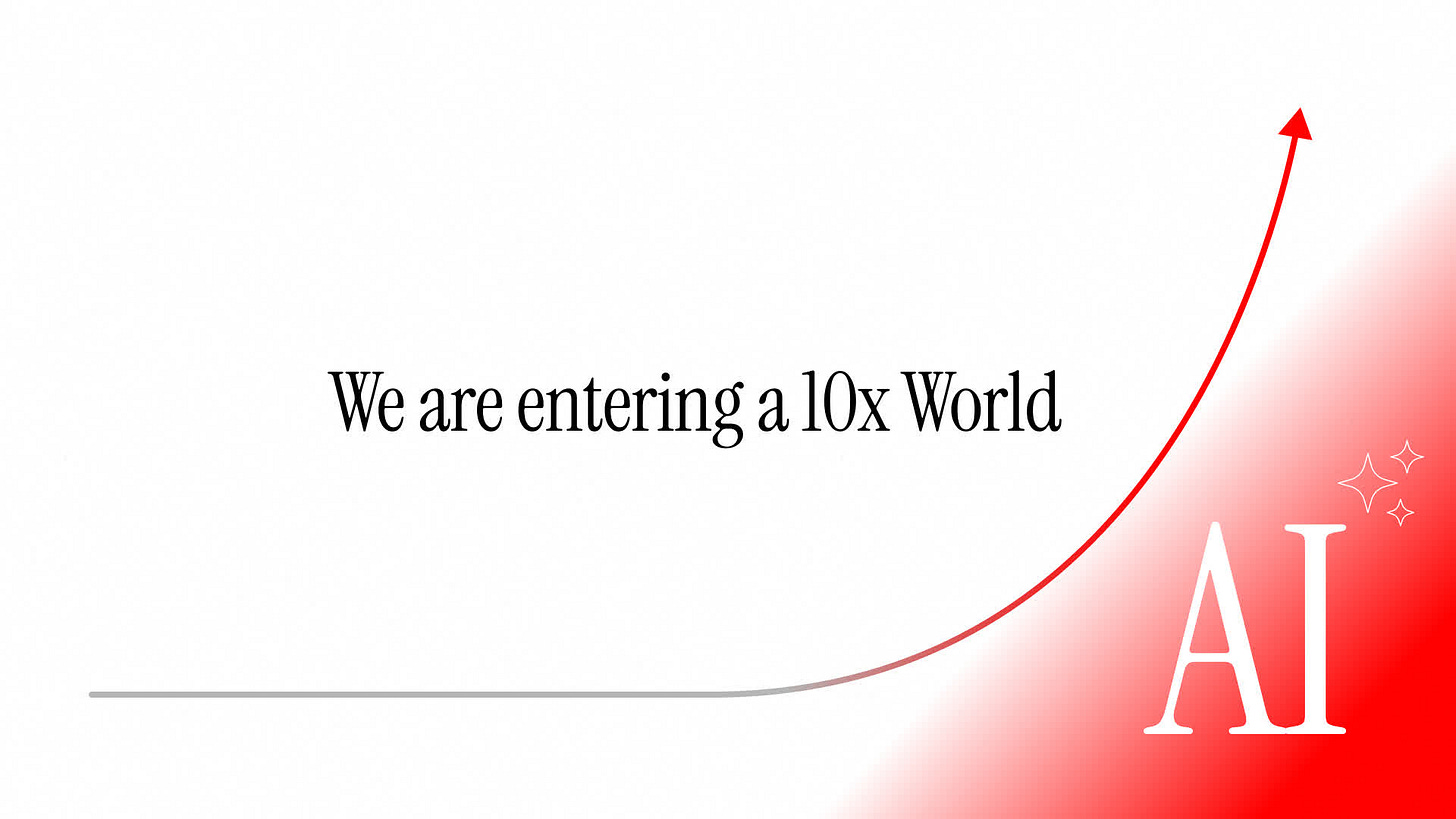
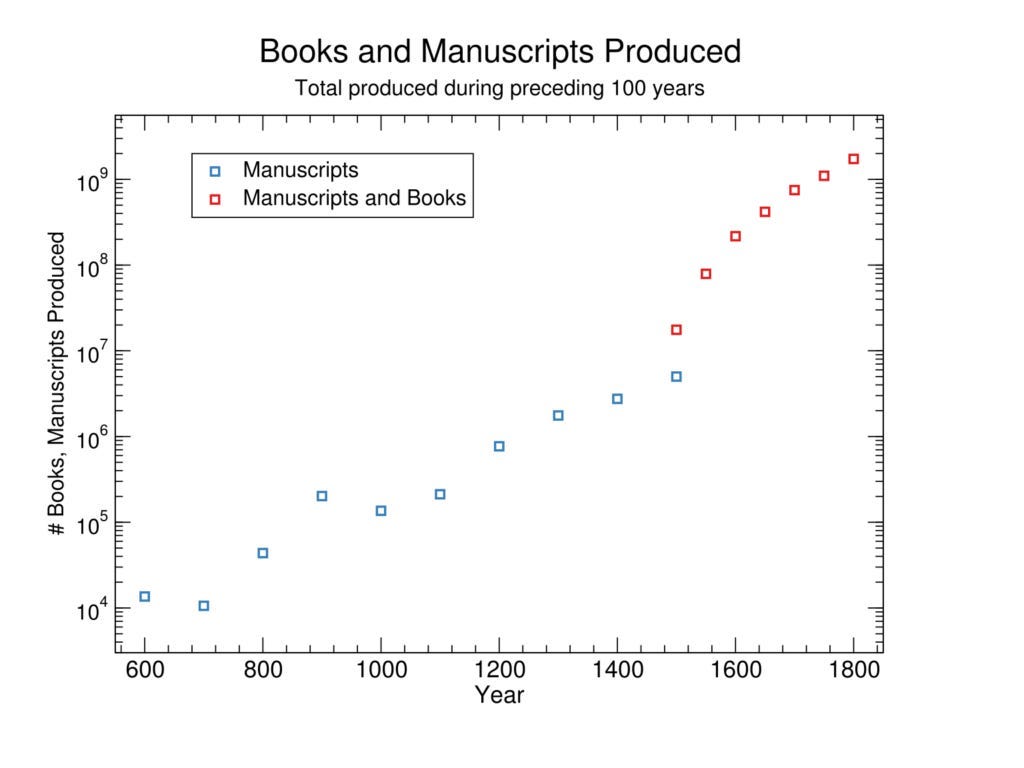
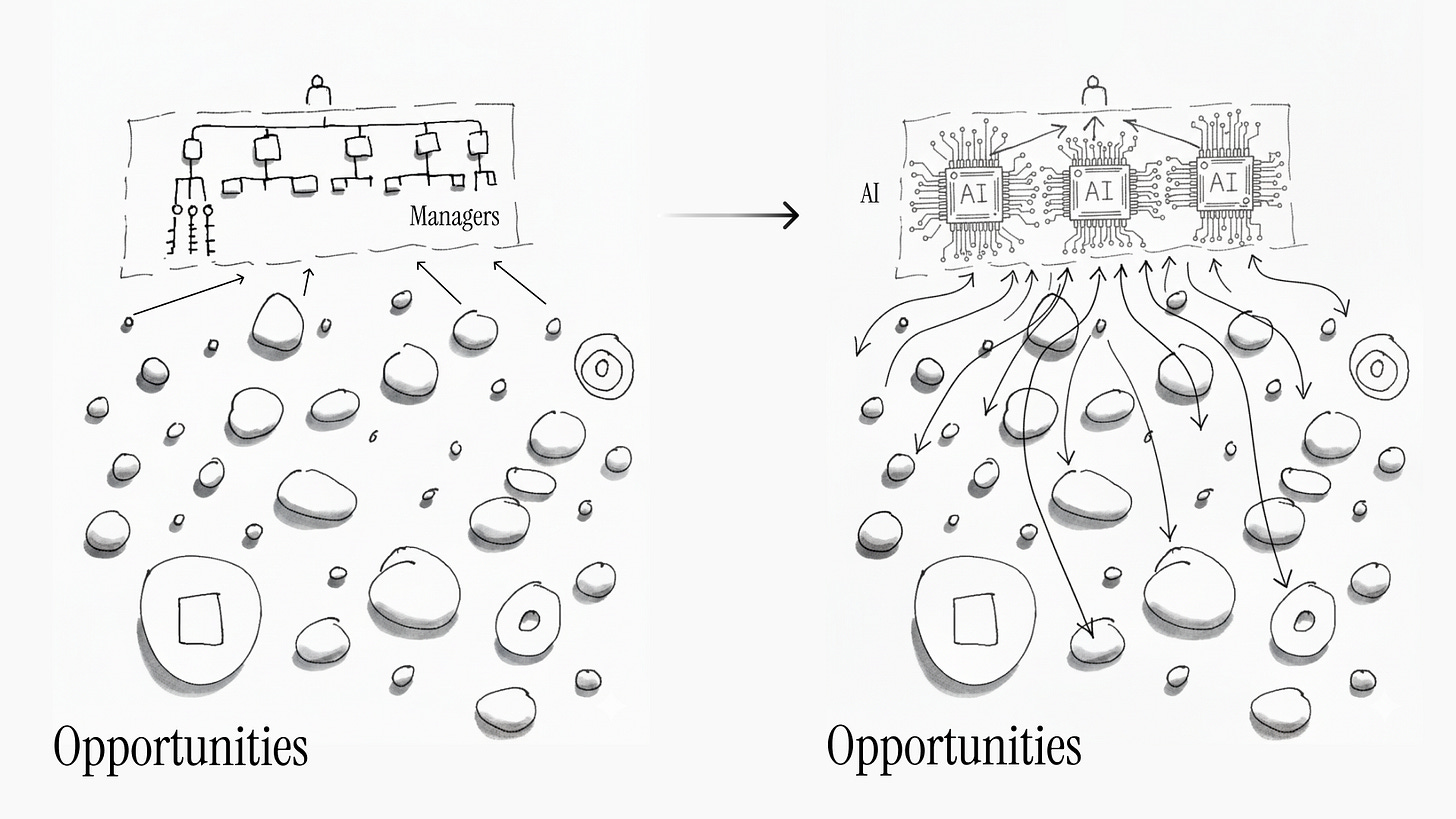
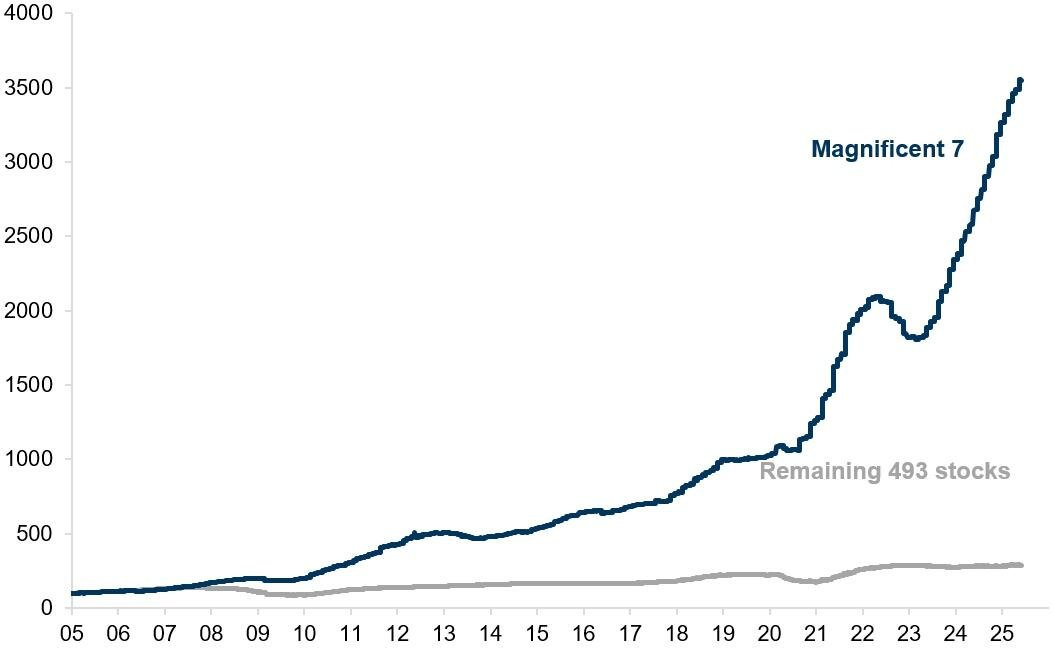
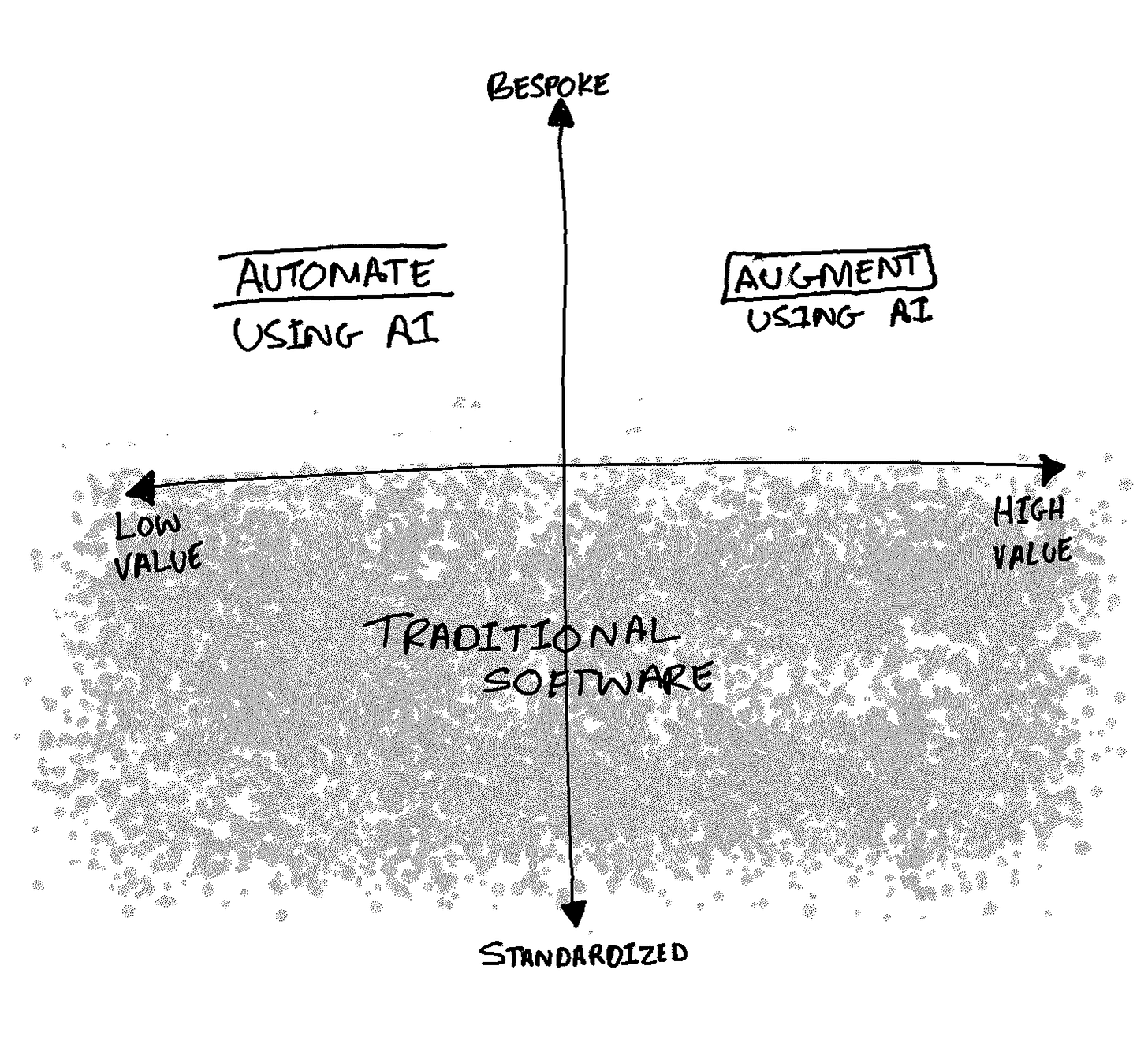


Great piece. "Horses for courses" 😬
https://open.substack.com/pub/themanagementconsultant/p/the-track-you-choose-determines-the?r=2k48qd&utm_medium=ios